Entry Category: National
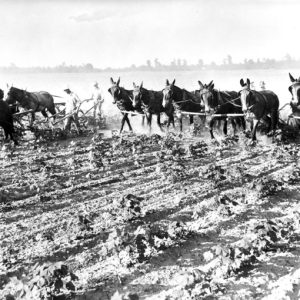 Cultivating Cotton
Cultivating Cotton
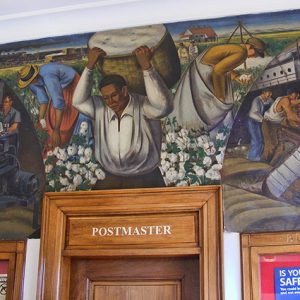 Dardanelle Post Office Art
Dardanelle Post Office Art
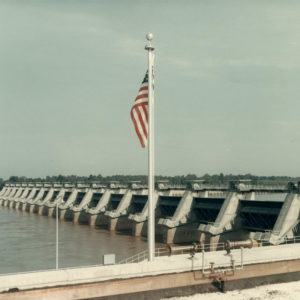 David D. Terry Lock and Dam
David D. Terry Lock and Dam
Davis, Danny K.
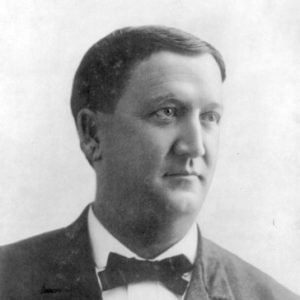 Jeff Davis
Jeff Davis
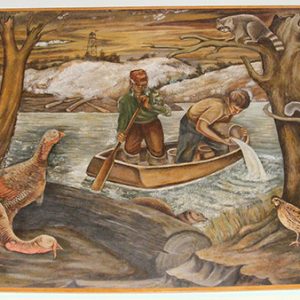 De Queen Post Office Art
De Queen Post Office Art
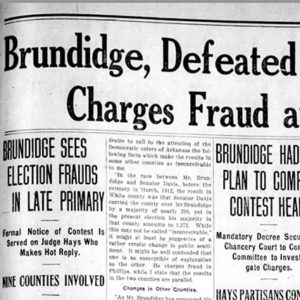 Defeat Headline
Defeat Headline
Dehahuit
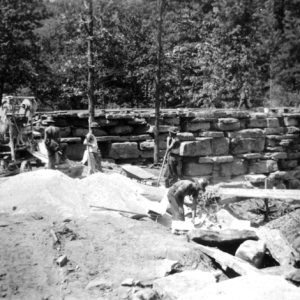 Devil's Den State Park
Devil's Den State Park
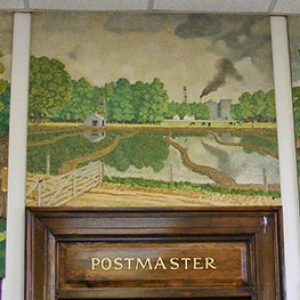 DeWitt Post Office Art
DeWitt Post Office Art
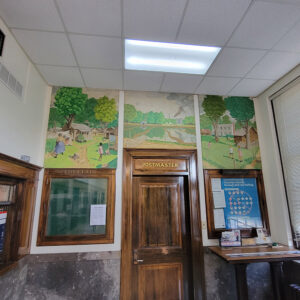 DeWitt Post Office Art
DeWitt Post Office Art
Dickey, Jay Woodson, Jr.
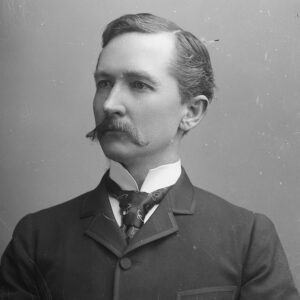 Hugh A. Dinsmore
Hugh A. Dinsmore
Dinsmore, Hugh Anderson
Dorsey, Stephen Wallace
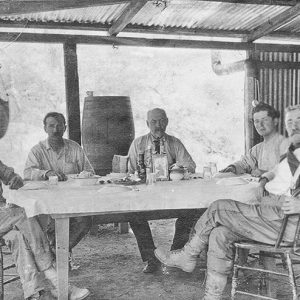 Stephen Dorsey in New Mexico
Stephen Dorsey in New Mexico
Driver, William “Judge”
Dunn, Poindexter
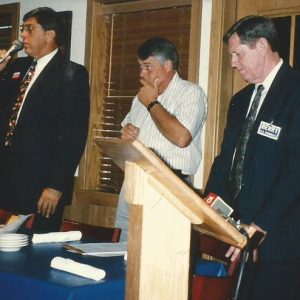 Dupwe vs. Berry
Dupwe vs. Berry
Duwali
aka: Bowl
aka: Bowles
Dyess (Mississippi County)
aka: Dyess Colony Resettlement Area
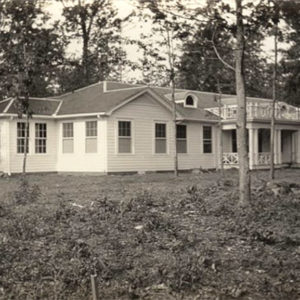 Dyess Hospital
Dyess Hospital
Eastham, Alan, Jr.
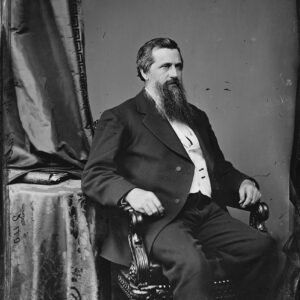 John Eaton
John Eaton
Education Reform
Edwards, John
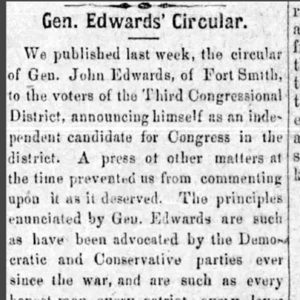 John Edwards Endorsement
John Edwards Endorsement
Elders, Joycelyn
aka: Minnie Lee Jones
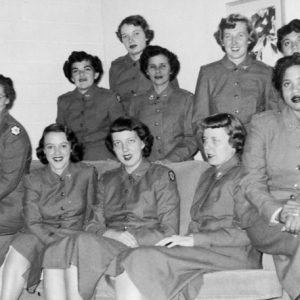 Joycelyn Elders
Joycelyn Elders
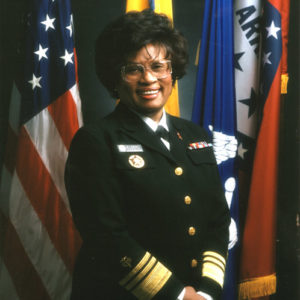 Joycelyn Elders
Joycelyn Elders
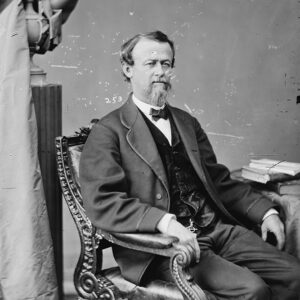 James T. Elliott
James T. Elliott
Elliott, James Thomas
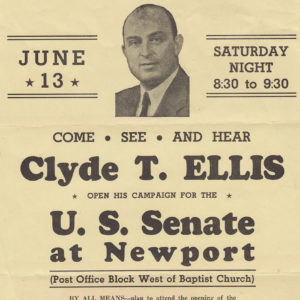 Ellis Broadside
Ellis Broadside
Ellis, Clyde Taylor
Farm Resettlement Projects
aka: Resettlement Administration
aka: Farm Security Administration
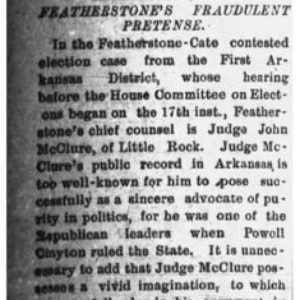 Featherstone Article
Featherstone Article
Featherstone, Lewis Porter
Floating CCC Camp at Jacks Bay
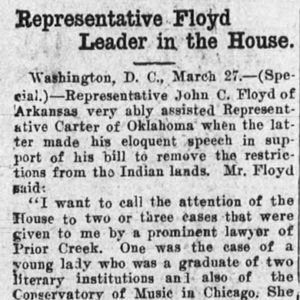 John C. Floyd Article
John C. Floyd Article
Floyd, John Charles
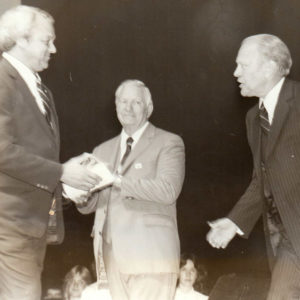 Ford Visit
Ford Visit
Fort Smith Council
 Sketch of Vince Foster
Sketch of Vince Foster
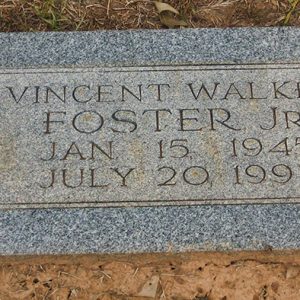 Vince Foster Grave
Vince Foster Grave
Foster, Vincent Walker (Vince), Jr.
Freedmen’s Bureau
aka: Bureau of Refugees, Freedmen, and Abandoned Lands
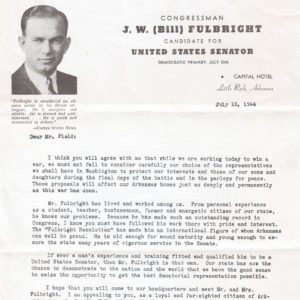 Fulbright Campaign Letter
Fulbright Campaign Letter
Fulbright Memorandum
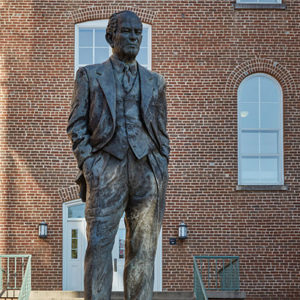 Fulbright Statue
Fulbright Statue




